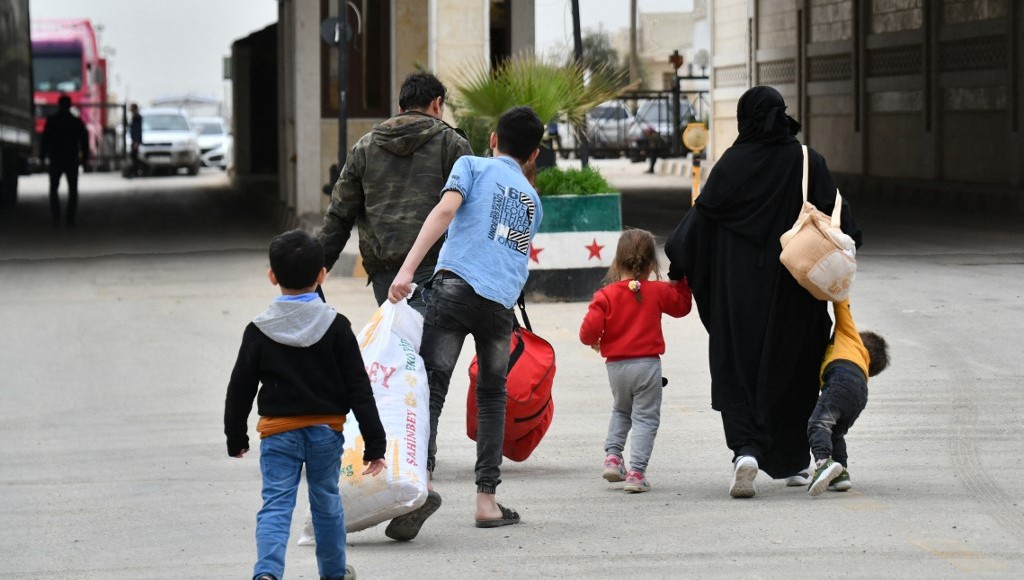An overwhelming majority of Turks, 77 percent, strongly support closing borders to refugees, according to the results of a recent survey conducted by Ipsos and the United Nations High Commissioner for Refugees (UNHCR).
The results of the “Global Attitudes Towards Refugees” survey, conducted on 33,197 adults across 52 countries for World Refugee Day 2024 marked on June 20, were released as part of UNHCR’s Hope Away from Home campaign and aims to shed light on issues related to refugees and contribute to a better global understanding of public attitudes towards refugees.
The global survey found that 73 percent (global country average) supported offering refuge to those fleeing war and persecution, with the rate, highest in Kenya (93 percent) and Uganda (92 percent), decreasing to 57 percent in Turkey.
According to the survey, sentiment is mixed towards closing borders to refugees, with a global average of 44 percent holding the view that “we must close our borders to refugees entirely – we can’t accept any at this time.” The rate of those supporting the closure of borders is the highest in Turkey, with 77 percent, and lowest in Uganda, with 12 percent.
While the global average showed that 73 percent of people believe that those fleeing war or persecution should be able to take refuge in other countries, including their own, the Turkish public held a different view, with only 57 percent sharing this sentiment.
The survey also revealed widespread doubts over the authenticity of refugees, with a global average of 61 percent believing that most foreigners who want to get into their countries as refugees are actually seeking better economic opportunities. This rate goes up to 70 percent in Turkey.
The results further showed that the dominant view on refugee intake, particularly in Turkey (83 percent), Lebanon (81 percent) and Greece (76 percent), is that their nation has already exceeded its capacity in accepting refugees.
Globally, 37 percent believe that insufficient aid is being provided to countries hosting refugees, with the rate increasing to 43 percent in Turkey, which is host to the largest number of refugees under UNHCR’s mandate in 2023. Only a third of the country believes the aid exceeds the need.
While only 22 percent of Turks believe that most refugees coming to their country will successfully integrate into their new society, those holding the view that refugees make a positive contribution to their country made up the lowest rate of 18 percent.
When asked what have they done to show support for refugees within the past 12 months, 81 percent of Turks said they had not taken any action within the past year, followed by those who donated funds/goods to support the refugee cause (6 percent), supported refugees to prepare for or find a job (5 percent), offered refugees a place to stay in their home (4 percent), volunteered to help refugees (3 percent), posted social media messages in support of refugees (3 percent) and contacted government officials or signed petitions advocating for refugees (3 percent).
While 58 percent of Turks said they would classify a person fleeing their home country due to conflict, violence or persecution as a “refugee,” only 30 percent said they would classify a person escaping their home country due to a natural disaster as one.
When asked to comment on the impact of refugees on Turkey’s national labor market, cultural identity and economy, a mere 11 percent of respondents anticipated a positive effect on the labor market, while only 7 percent expected a positive influence on cultural identity and 10 percent on the economy, all of which were the lowest among the 52 countries surveyed.
Only 7 percent of Turks said they support refugees having the opportunity to apply for permanent residence or citizenship in their country, the survey results showed.
According to the International Organization for Migration (IOM)’s World Migration Report 2024, Turkey is still the leading host country for refugees worldwide, with a population of nearly 3.6 million individuals seeking shelter, mainly from war-torn Syria.
Anti-refugee sentiment in Turkey has been on the rise for several years. It is not only rooted in political rhetoric but also in the social and economic challenges the country faces. Refugees are often blamed for exacerbating these issues, despite the complexities of the underlying problems.
According to Ipsos, the survey takes place against a backdrop of unprecedented levels of forced displacement, with more than 120 million people forcibly displaced globally, by May 2024, as a result of persecution, conflict, violence, human rights violations or events seriously disturbing the public order. Of those 43.3 million are refugees, including 31.6 million refugees and people in a refugee-like situation and 5.8 million other people in need of international protection under UNHCR’s mandate, as well as 6 million Palestinian refugees under the mandate of the United Nations Relief and Works Agency for Palestine Refugees in the Near East (UNRWA).
